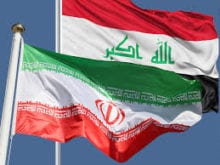Iranwire – Iran has been grappling with a costly dilemma since new international regulations for lower-sulfur marine fuel oil took effect in 2020.
It is burning its surplus of high-polluting fuel oil domestically while spending hundreds of millions importing cleaner fuel allowed at its ports.
The Islamic Republic finds itself stuck between the mandates of the UN International Maritime Organization, which capped allowable sulfur content in shipping fuel at 0.5 percent as of January 1, 2020, and crippling economic sanctions limiting the country’s ability to export its oil products or invest in refinery upgrades.
Before the regulatory change, a significant portion of Iran’s fuel oil production, which tends to be higher in sulfur content, was absorbed by the global shipping industry as bunker fuel.
However, with that international market severely constrained, Iran has been left with massive stockpiles of high-sulfur fuel oil (HSFO) that do not meet the new standards, according to a new report by data analysis group Iran Open Data.
According to industry experts, Iran can only produce around 15,000 tons per month of very low-sulfur fuel oil (VLSFO) from its Arak refinery. This amount falls far short of the estimated domestic shipping demand of 125,000 tons monthly.
The shortage has forced Iran to import over $70 million worth of compliant VLSFO each month to meet its obligations to international shippers at its ports.
Due to air pollution issues, many countries have already shifted electricity generation from fuel oil to natural gas. This move increased the shipping industry’s significance as a key buyer of refineries’ fuel oil output.
Unable to export the large amount of unsold HSFO, Iran has resorted to burning the sulfur-laden fuel in its power plants to avoid total waste. This move is causing intense air pollution, especially during the winter months when smog blankets major cities.
Click here to read Iran Open Data’s article in Persian.
Founded in 2016, Iran Open Data (IOD) strives to make Iran’s official data accessible, available and re-usable. Not only does IOD collect and process raw datasets for researchers and experts, it also publishes exclusive data-driven articles and digital stories for the general public. Additionally, IOD conducts public data calls and surveys on often neglected or taboo issues that are rarely addressed by the government. Follow IOD for all the data-stories concerning Iran.
 Shabtabnews In this dark night, I have lost my way – Arise from a corner, oh you the star of guidance.
Shabtabnews In this dark night, I have lost my way – Arise from a corner, oh you the star of guidance.



